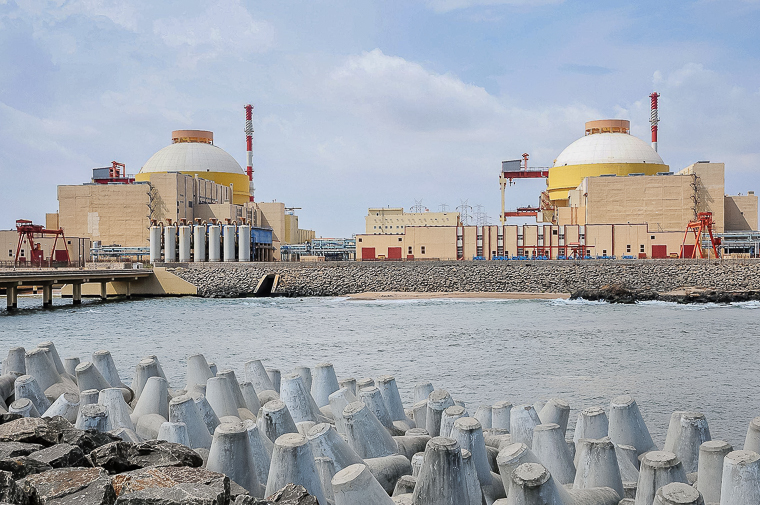
Rosatom and India: Together for the Long Haul
back to contentsAndrei Lebedev, ASE’s Vice President for South Asian projects, noted, “This is the closing step of the unit’s start-up. The further plans are to connect Unit 2 to India’s national grid by late July 2016. Kudankulam Unit 1 is operating at 1,000 MW, which is its designed capacity, and seamlessly providing power for Southern India.”
Russia is constructing Kudankulam NPP in Indian state Tamil Nadu. Kudankulam Unit 1 has a capacity of 1,000 MW. For now, it is India’s most powerful reactor compliant with the latest safety requirements. The unit was connected to the Indian national power grid in 2013. In the spring of 2014, Russia and India signed a framework agreement to build the third and fourth units at Kudankulam. Construction documents were signed in December of the same year. At present, the parties are drafting a framework agreement on Units 5 and 6.
Russia and India have a good outlook for cooperation in nuclear energy during the entire 21st century and are bound to be strategic partners. This was the inference drawn by Russian and Indian experts who took part in the Moscow – New Delhi video conference held by the international news agency Rossiya Segodnya.
India is currently pursuing a long-term strategy of transition from oil dependence to nuclear power prevalence, and Moscow is seen by New Delhi as a valuable partner at any stage of this process, says Narendra Taneja, President of the World Energy Policy Summit and India’s leading energy expert.
“We are preparing to become a gas-based economy in the coming 30–40 years. Russia and India have a great potential in this area, in terms of both developing deposits and gas production, as well as construction of gas infrastructure, that is, the pipelines. My hope is that someday we will build a Russia to India gas pipeline that may run across Western China, for example,” said the expert.
At the same time, he reminded that the oil and gas cooperation is just an in-between step of the long haul. “Speaking of oil and gas, I regard them as a bridge. After 2070, we are hoping to gradually extend the share of nuclear and sun power to over 50% of our energy balance,” Mr. Taneja stressed. “We have a long-standing partnership experience, and all those are the spheres where we can cooperate. Russia and India are perfectly suited to each other as partners in the energy sector – from oil to renewables and atomic power,” says the Indian expert.
Gleb Ivashentsov, a member of the Russian Council on Foreign Affairs and Ambassador Extraordinary and Plenipotentiary to India, emphasized that Russia is the only country building a nuclear power plant in India. “Despite the willingness shown by Western countries, they are not ready to agree to the condition of the Indian government that the constructors of nuclear stations should be responsible for safe operation of the reactors. The Russian party was ready for such terms,” said the expert.




